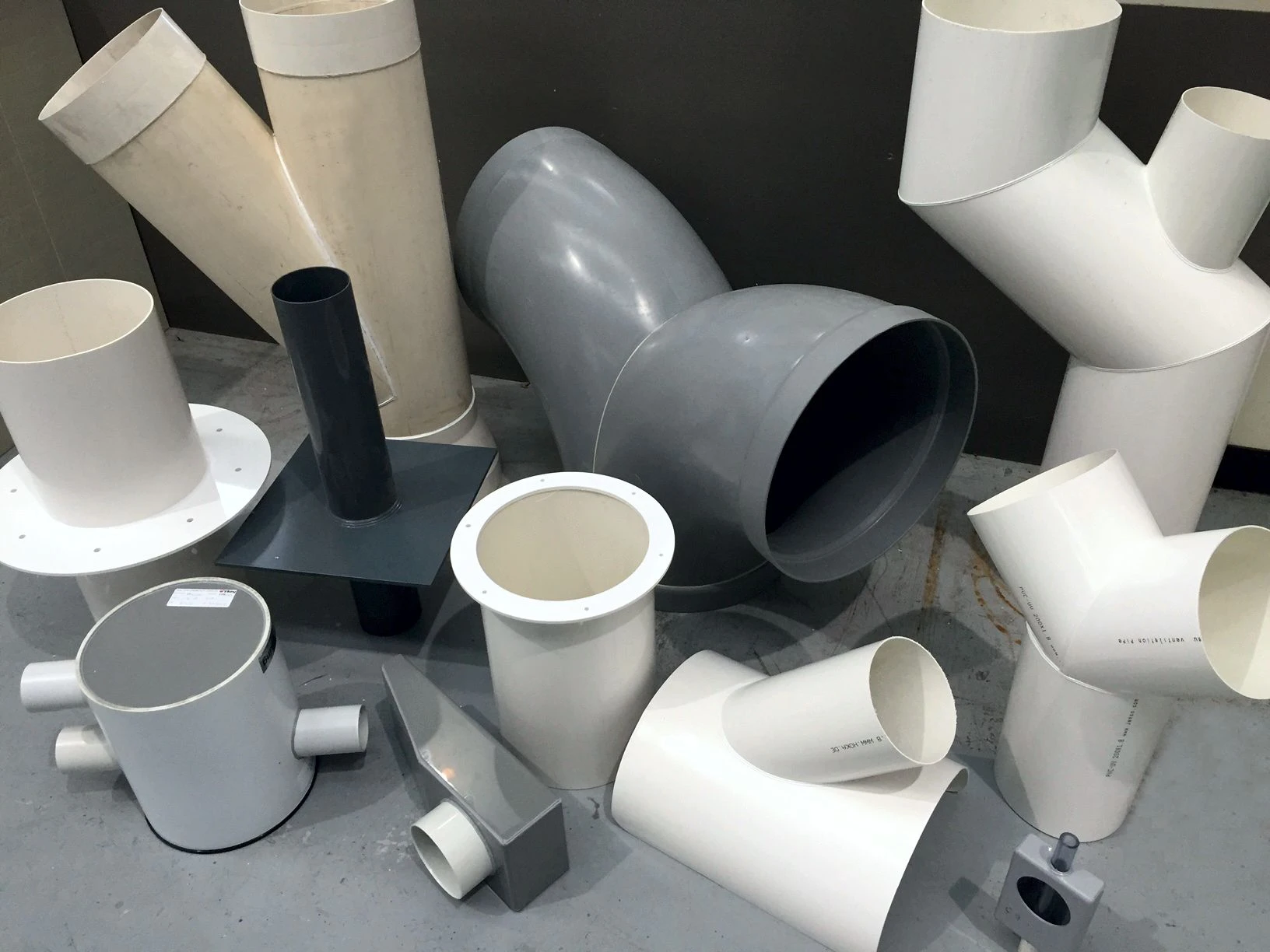
PVC pipe and fittings are widely used in plumbing, construction, and various industrial applications due to their durability, versatility, and resistance to corrosion. Here’s a general overview:
Types of PVC Pipes
- Schedule 40 and Schedule 80:
- Schedule 40 is the most common, suitable for residential and light commercial applications.
- Schedule 80 has thicker walls for higher pressure applications.
- PVC Pressure Pipe:
- Designed for pressurized systems, often used in water supply and irrigation.
- PVC DWV (Drain, Waste, and Vent) Pipe:
- Specifically for drainage applications; not meant for pressurized systems.
- Flexible PVC:
- Used in applications where bending or flexibility is needed, like pool plumbing.
Fittings
- Types: Include elbows, tees, couplings, caps, and more.
- Joining Methods: Typically joined using solvent cement, though threaded and gasketed options exist for certain applications.
Advantages
- Corrosion Resistance: Does not rust or corrode, making it ideal for water applications.
- Lightweight: Easy to transport and handle compared to metal pipes.
- Cost-Effective: Generally less expensive than metal alternatives.
- Easy to Work With: Can be cut, shaped, and joined using standard tools.
Applications
- Plumbing: Water supply, drainage, and venting systems.
- Irrigation: Used in agricultural and landscaping irrigation systems.
- Electrical Conduits: Protects electrical wiring from damage.
- Industrial Uses: Chemical handling and manufacturing processes.
Limitations
- Temperature Sensitivity: Not suitable for high-temperature applications (typically above 140°F or 60°C).
- UV Sensitivity: Prolonged exposure to sunlight can degrade PVC; UV-resistant coatings are available.
- Brittleness: Can become brittle in cold temperatures.
Installation Tips
- Cutting: Use a proper PVC Pipes And Fittings cutter or saw for clean cuts.
- Joining: Ensure surfaces are clean and dry before applying solvent cement.
- Support: Provide adequate support to prevent sagging or movement, especially in longer runs.
Safety Considerations
- Ventilation: When working with solvent cement, ensure good ventilation due to fumes.
- Personal Protective Equipment (PPE): Use gloves and safety goggles to protect from sharp edges and chemicals.
PVC pipes and fittings are an excellent choice for many applications, combining functionality with cost-efficiency. If you have specific questions or need guidance on a project, feel free to ask!